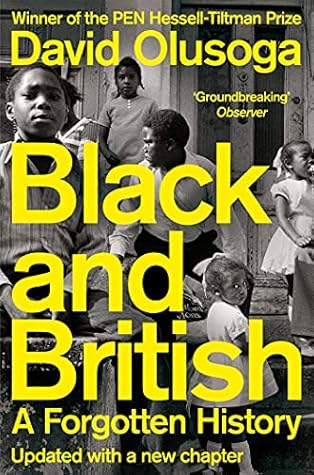More on this book
Community
Kindle Notes & Highlights
Read between
September 17 - October 1, 2018
When I was a child, growing up on a council estate in the North-East of England, I imbibed enough of the background racial tensions of the late 1970s and 1980s to feel profoundly unwelcome in Britain.
Thanks to their work it is today well understood that people of African descent have been present in Britain since the third century, and there have been black ‘communities’ of sorts since the 1500s.
In a remarkable speech that has been largely forgotten, Enoch Powell asked what all this meant for Britain.
Powell spoke in beautiful, elegiac prose that conjured up evocative myths of Britishness, continuity and belonging and did so with as much lyricism and eloquence as any of the famous speeches of Winston Churchill;
Black Britons were to Powell and those like him a constant reminder of the lost empire and the connections and interconnections that had made Britain powerful.
The hymn ‘Amazing Grace’, beloved by generations of Britons, was written by the British slave-trader John Newton, whose religious conversion eventually led him to condemn the trade in which he was once enthusiastically engaged.
Black British history is everyone’s history and is all the stronger for it.
That strange duality in attitudes which many foreigners were to regard as an acute form of hypocrisy was to be characteristic of British attitudes towards the rights, status and humanity of Africans in later centuries.
For most of the twentieth century, Georgian Britain was indeed a victim of its own historical myth, its wider history obscured behind its architectural achievement.
While we admire Georgian architecture we are now also drawn to the dark and seedy side of that hypocritical age.
True liberty protects the labourer as well as his lord’.
But he concluded in court that, ‘If the parties will have judgment, “fiat justitia, ruat cœlum;” let justice be done whatever be the consequence.
Those who arrived with skills or were simply lucky found work and became black Victorians, mostly marrying white British women, their descendants disappearing into the background population after a couple of generations, as had the children and grandchildren of the black Georgians.
The mill workers of Lancashire and the slaves of the Mississippi Valley were unknowingly trapped within what historians call the First Age of Globalization – which began in the middle of the nineteenth century and was brought to an end by World War One and its isolationist aftermath.
In truth the poor black people of Jamaica had worked industriously to forge their new settlements, clear and cultivate their plots and establish a market-garden economy, the remnants of which exist in Jamaica to this day.
Although few people outside Jamaica or beyond the Jamaican diaspora have ever heard of Morant Bay what happened there, and what spilled out into the villages of St Thomas in late 1865, is known to all Jamaicans.
The University of Durham developed particularly strong ties with both the West Indies and West Africa, and became one of the few centres for the education of black men in Britain through the late nineteenth and early twentieth centuries.
In the years after 1945, thousands of British women who had or would become engaged or married to white GIs, or had children with them out of wedlock, went to the United States under the GI bride scheme, but the white sweethearts of black GIs had the significant obstacle that inter-racial marriage was banned in around twenty states.
Among those who served in the KAR was Hussein Onyango Obama, the grandfather of the 44th President of United States, who was deployed in both Ceylon (now Sri Lanka) and Burma.
The far more pressing issue for the new government was Britain’s acute labour shortage, which Attlee and his Cabinet colleagues were determined would be solved using white foreign workers and not black subjects of the British Empire.
Since the start of the 1980s Britain has undergone a second great wave of black migration, one that has largely gone unnoticed.
Knowing this history better, understanding the forces it has unleashed, and seeing oneself as part of a longer story, is one of the ways in which we can keep trying to move forward.


